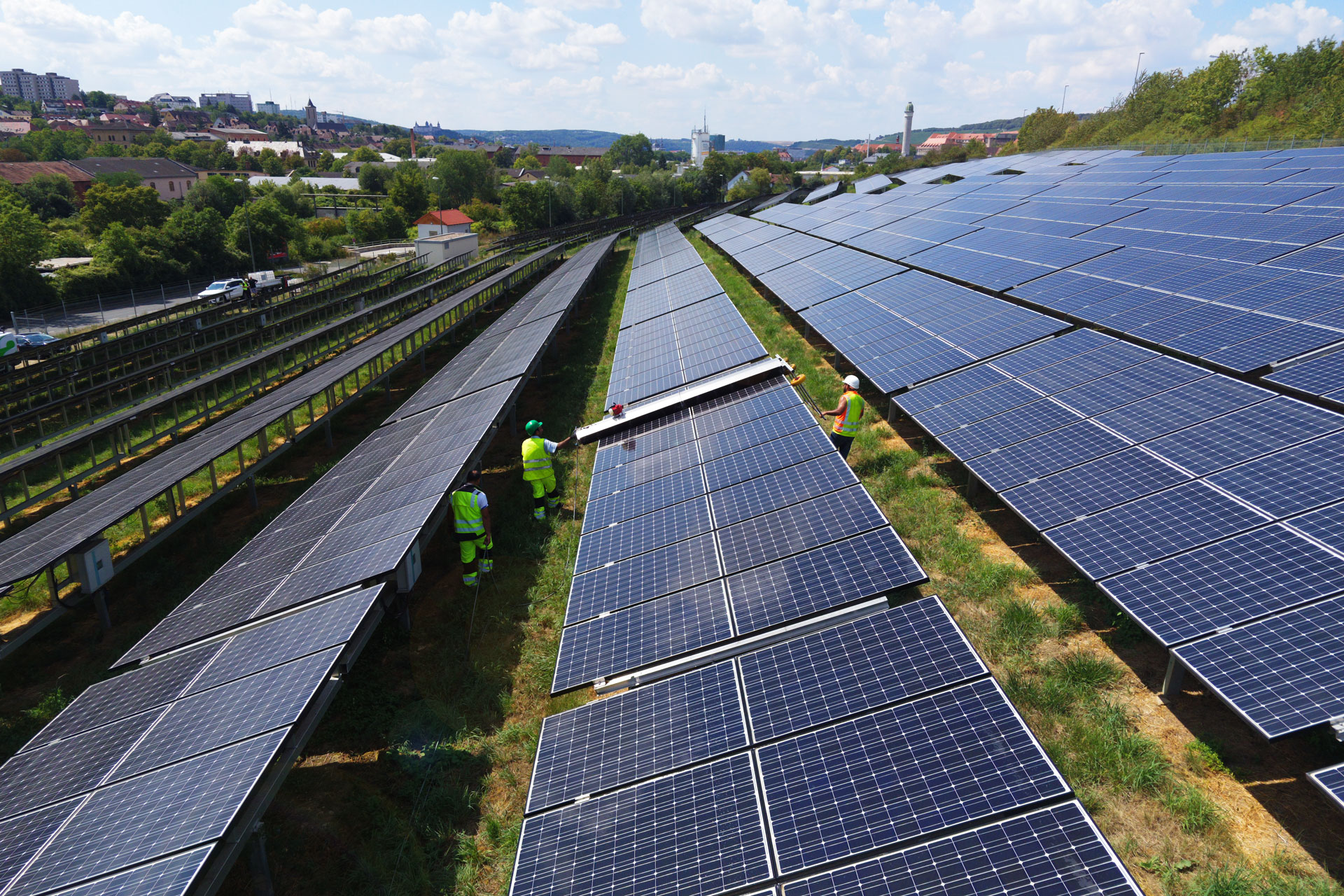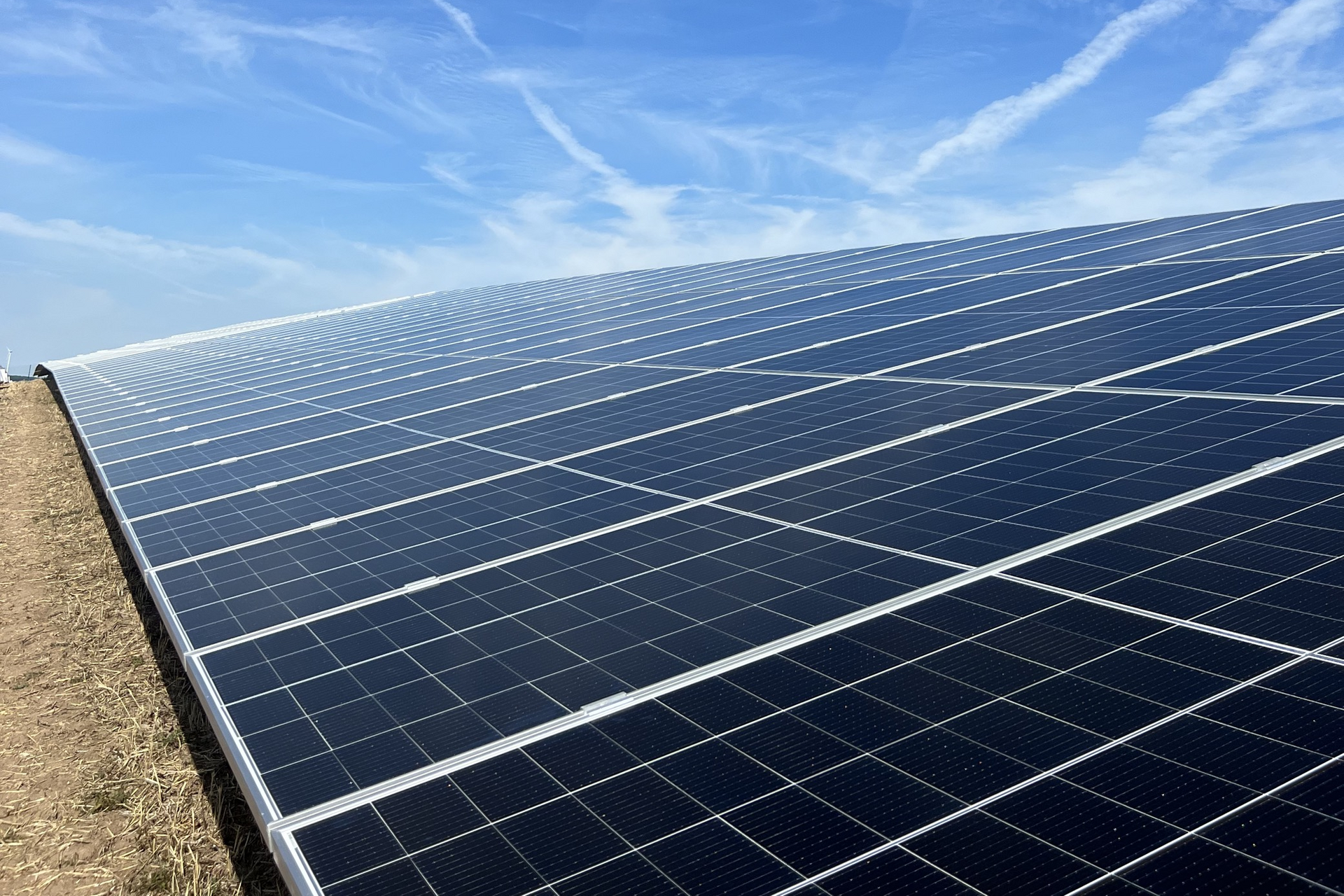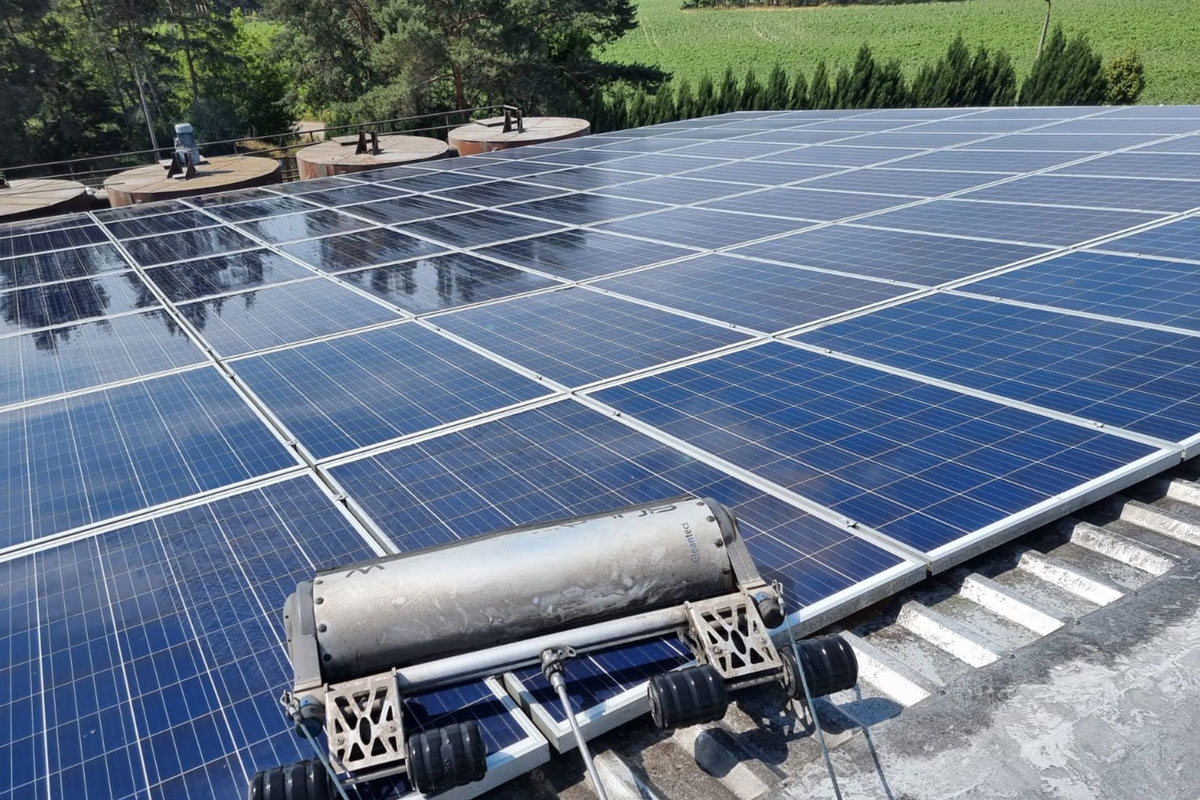Your contact person.
Carsten Roller
Head of Operation & Maintenance

Every year, a lot of revenue is lost in the solar industry because solar modules become dirty and therefore produce less electricity. System operators who want to avoid major losses in yield should therefore deal with soiling and have their solar systems cleaned regularly.
Consequences of dirty solar modules
The methods of module cleaning

Contamination can impair the efficiency of photovoltaic systems. If too much dust, bird droppings, pollen, leaves, lichen, moss or emissions from industry and agriculture accumulate, this has the same effect as shading: less light reaches the solar cells, electricity generation is reduced and the economic yields calculated by the operator are also reduced. Solid deposits such as bird droppings are also a safety risk: they can cause the solar installation to overheat and cause a fire. This is known as the "hot-spot effect".
Persistent soiling frequently occurs in the vicinity of farms. The same applies to busy roads, where exhaust fumes from traffic are deposited on the photovoltaic system. In both situations, the system should be checked more frequently and an annual solar park cleaning may be necessary. In the case of low air pollution, on the other hand, it is usually sufficient to have the PV system professionally cleaned every three to five years.
Photovoltaics is also particularly problematic in desert regions. On the one hand, these regions have an advantage due to the high level of solar radiation. However, they also place special demands on the solar modules. In addition to high UV radiation, high temperatures and large temperature differences between day and night, "soiling" must be mentioned here. A particularly large amount of dust and sand is deposited on the modules, and cooling at night causes dew to form, causing the particles to literally stick to the surface. Regular solar park cleaning is particularly important in these regions.
Dirty modules are usually cleaned mechanically, for example by manual, semi-automatic or fully automatic wiping or sweeping. However, this must be done very carefully, which is why cleaning should be carried out by professionals. Monitoring is important in order to find the optimum time for solar park cleaning and to minimise soiling effects: there are numerous soiling sensor concepts in which cleaning is carried out manually or automatically on a regular basis. Visual terrestrial or airborne inspections by drones and satellites are also possible.

System operators should not remove soiling from the PV modules themselves, but should have it cleaned by a specialised company:

If you want to leave photovoltaic cleaning to a professional, you are in good hands with Iqony Sens. Whether open-space photovoltaic systems or rooftop PV systems: we have partners with years of experience in the areas of photovoltaic service and maintenance. PV cleaning is naturally part of this, as are green cuttings, condition checks and repairs to damage. Our customised services ensure the highest possible performance and yield as well as a long service life for your photovoltaic system.